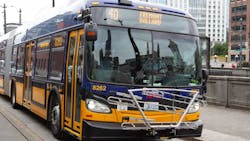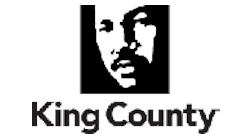SDOT completes final design on Route 40 Transit-Plus Multimodal Corridor project
The Seattle Department of Transportation (SDOT), in collaboration with King County Metro, has completed the final design on the Route 40 Transit-Plus Multimodal Corridor project. The project will create a safer and more reliable bus route and Seattle’s first-ever freight- and bus-only lane. The project now moves to the contractor selection process, with construction anticipated to begin in 2024.
The Route 40 project will provide several important benefits, including:
- Three total miles of businesses access and transit-only lanes and freight and bus-only lanes
- Between five and 10 percent transit travel time reductions
- 47 upgraded ADA-accessible curb ramps
- 8 new bus bulbs (for safer and more convenient boarding)
- 6,000-plus feet of upgraded sidewalks
The project improvements are focused on four key areas: Westlake, Fremont, Ballard and North Seattle.
“As a frequent rider of the Route 40 bus, I’m thrilled to see this project completing design and preparing for construction. Connecting Westlake, Fremont and Ballard with downtown and Northlake, Route 40 is a vital transit route that will become safer, quicker and more reliable as a result of this essential project,” said Greg Spotts, SDOT director.
Community feedback was present throughout the design process. SDOT has been receiving feedback from Seattle residents since 2020 on the project. After receiving the feedback from the community, SDOT updated the final design by:
- Meeting with Fremont businesses, property owners and King County Metro to discuss bus stop design and will continue to reach out on amenities.
- Maintained the total number of loading zones in each neighborhood and added new zones in Westlake and Fremont to support commercial loading for businesses and customers.
- Confirmed plans to launch a freight and bus-only Lane pilot project on Westlake Avenue North. The pilot will last for one year and will allow freight trucks that are more than 26,000 pounds to use select bus lanes, be in effect 24/7 and be evaluated by the Urban Freight Lab.
- Completed a traffic analysis during the early planning and design phase and committed to business and property owners to observe traffic patterns after project completion and keep them engaged on findings and their experience.
- Provided information on the environmental analysis in the State Environmental Policy Act process. The project received a Determination of Non-Significance in spring 2023, which confirmed the project will not have a probable significant adverse impact on the environment.
Route 40 serves the Northgate, Crown Hill, Loyal Heights, Ballard, Fremont, South Lake Union, Downtown Seattle and Pioneer Square neighborhoods. More than 95,000 people live within a half-mile of Route 40.
SDOT says ridership is continuing to increase. As of August 2023, daily ridership on Route 40 totaled more than 7,500 people on the average workday, which is one of King County Metro’s highest ridership routes.
“Our administration is committed to enhancing access to dependable transportation so people can easily reach their destinations. Route 40 is one of Seattle’s highest used transit routes that connect communities from Downtown to Crown Hill. We have an important opportunity to make improvements that increase transit reliability, improve safety and develop innovative freight solutions. As this project continues, we will work with neighborhoods, transportation leaders and the freight and business community to accomplish our shared goals and bolster our city’s economic vitality,” said Mayor of Seattle, Wash., Bruce Harrell.
New watermain upgrades on Fremont Avenue North
Seattle Public Utilities is currently planning to replace a 100-year-old waterline under Fremont Avenue between 34th and 35th St. SDOT will coordinate with SPU to determine if replacing old utilities infrastructure is needed to avoid digging up a newly constructed concrete street in the future.
“Route 40 continues to be one of our busiest routes, serving neighborhoods with riders who are looking to us for faster and more consistent service. This is a corridor that serves drivers, bikers, rollers, walkers and a growing number of bus riders. King County Metro is pleased to partner with SDOT in the development of a final design that will make it easier for more people to choose transit for their trips to the businesses that make Fremont such a unique community,” said Michelle Allison King County Metro General Manager.



